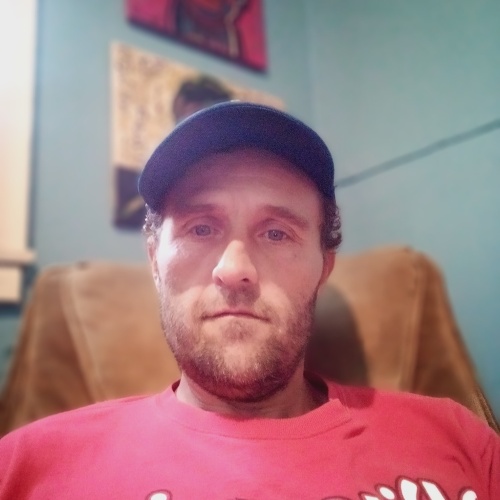'A matter of life and death': New Orleans nurses on organizing for patients' survival
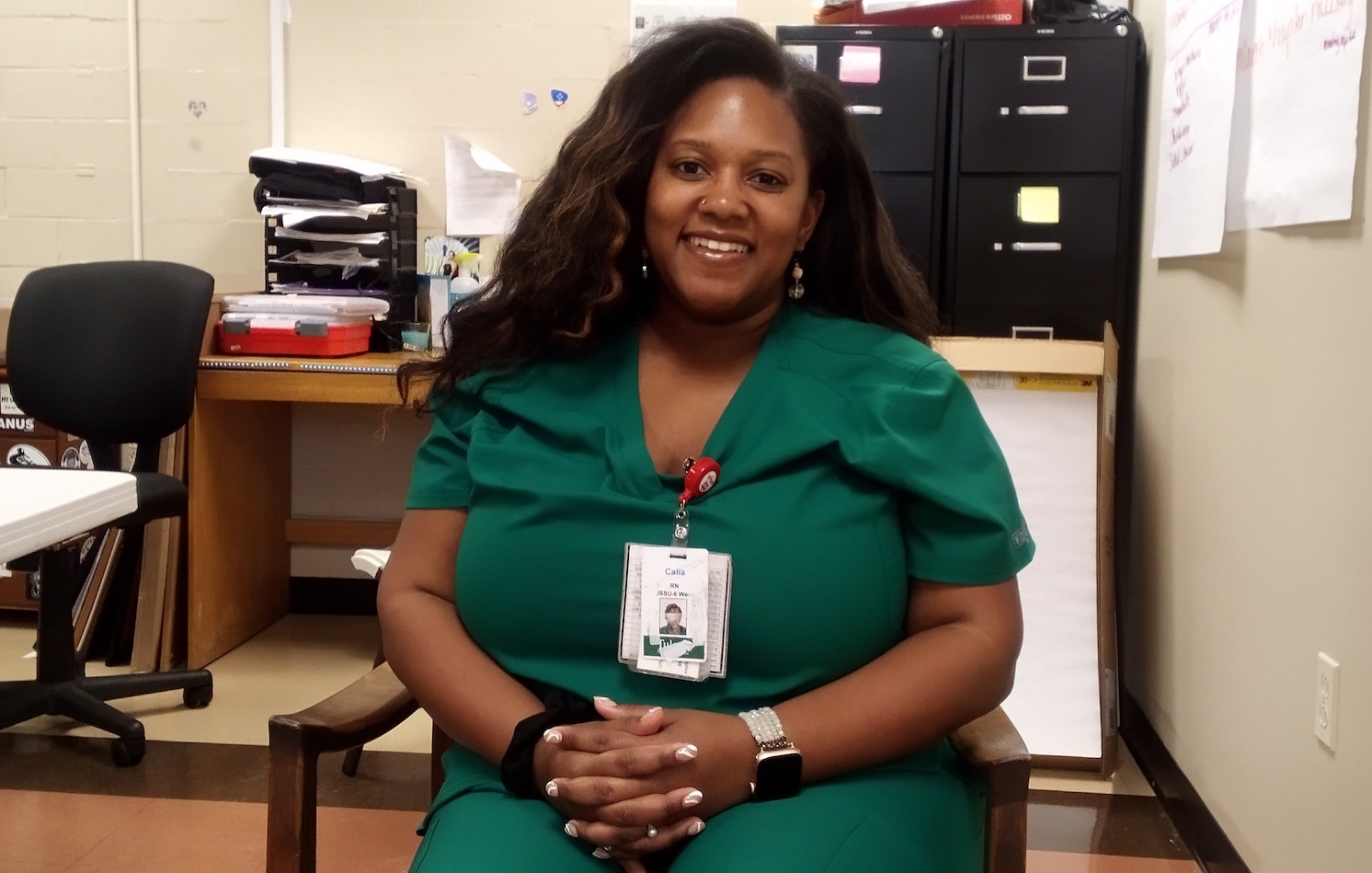
Calia Chavis is among the nurses in New Orleans who will be affected by the state's decision to allow LCMC Health System to purchase three Tulane University hospitals from HCA Healthcare, creating a hospital duopoly in the city. (Photo by Jason Kerzinski.)
In early January, the Louisiana Department of Justice (DOJ) signed off on LCMC Health System's acquisition of three Tulane University hospitals in New Orleans from HCA Healthcare of Nashville, Tennessee. The purchase includes Tulane Medical Center, Lakeview Regional Medical Center, and Tulane Lakeside Hospital.
The sale means that LCMC — a New Orleans-based nonprofit network of health care providers in South Louisiana — now owns more than half of hospitals in the city. The deal will turn New Orleans into a hospital duopoly where patients will be cared for by either LCMC or Ochsner Health, a nonprofit system also headquartered in the city and serving Southeast Louisiana.
Louisiana regulators signed off on the $150 million deal despite opposition from New Orleans nurses involved with the National Nurses Organizing Committee, an affiliate of National Nurses United, the largest organization of registered nurses in the U.S. They worry that the duopoly will end up hurting both health care workers and their patients, and they are currently conducting a community survey to better understand people's concerns about the sale's impact.
Their concerns are not unfounded. For example, the director of the Federal Trade Commission's (FTC) Bureau of Economics recently stated that when hospitals merge they face less competition and raise prices by as much as 40 to 50%. And according to research from the National Institute for Health Care Management, wages were on average 4% lower for skilled workers and 6.8% lower for nurses and pharmacy workers over four years after a hospital merger took place. It's also not unheard of for hospitals acquired by larger systems to cut important services such as maternal, neonatal, and surgical care.
For the purchase of Tulane hospitals to move forward, the state DOJ had to issue what's known as a "certificate of public advantage" or COPA — a regulatory approach adopted by a growing number of state governments that immunize hospital mergers from FTC antitrust scrutiny under the state action doctrine. Under Louisiana's COPA law, enacted in 1997, the attorney general's office is not supposed to issue a certificate unless it finds the deal will lead to lower health care costs, improved access to care, or higher quality of care. But nurses say that has not been proven.
Last year the FTC unanimously issued a policy paper warning about pitfalls of COPA agreements, including higher prices and lower quality of care. In all, 19 states have some form of COPA law. Besides Louisiana they include the Southern states of Florida, Mississippi, South Carolina, Tennessee, Texas, Virginia, and West Virginia.
North Carolina is among several states that have repealed COPA laws, taking action in 2015 in order to allow the Mission Health hospital system in the western part of the state to hire more doctors and expand its profit margin. The repeal created an oversight void that allowed Mission to function as an unregulated monopoly, with a 2021 lawsuit accusing it of using its market control to raise prices while cutting costs in ways that put at risk the health and safety of patients and workers.
Nationwide, there were 53 hospital mergers and acquisitions in 2022, up slightly from 49 in 2021 but down from the 90 average deals annually from 2012 through 2019, according to a recent report from health care consulting firm Kaufman Hall. However, last year's fourth quarter saw a flurry of deals, and analysts are expecting to see more in 2023, driven in part by challenges related to inflation.
In order to understand what hospital consolidation means for nurses and patients, I recently met with four nurses from Tulane Medical Center, all active with the National Nurses Organizing Committee, which is determined to form a union even though first HCA, and now LCMC, have refused to acknowledge signed petitions for recognition. I asked them this: "Given current conditions for workers and patients at Tulane Medical Center, what are your biggest concerns about its sale from HCA Healthcare to LCMC Health?" These are their answers.
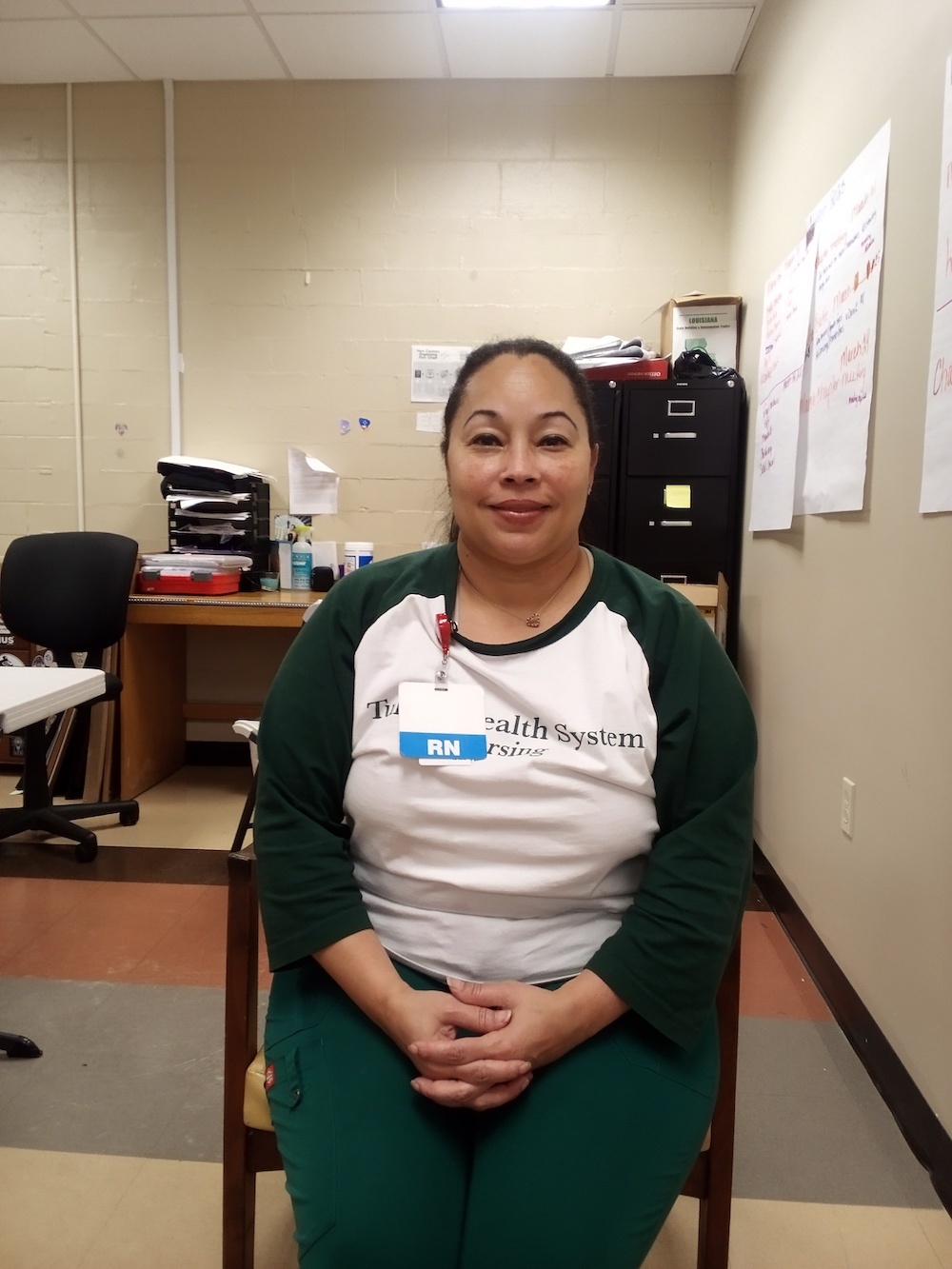
Mea Ratcliff: 'We are far behind in Louisiana'
My name is Mea Ratcliff. I've been a nurse since 2000, so for 20 years going on 23 years. I work in the transplant clinic at Tulane Medical Center, and I've been at Tulane in some form or capacity since 2004.
I want to discuss our work conditions at the hospital. We've worked in oppressive workplace conditions with lack of supplies and poor staffing ratios. It's led to high nurse turnover rates and a deplorable working environment for RNs at Tulane. This is why we contacted the nursing union. The working conditions have progressively gotten worse over the recent years. Studies have proven the importance of nurse to patient ratios. When safe nurse-patient ratios are adhered to in hospital staffing, patient outcomes are improved.
We've organized a nurse union at Tulane with the majority support from hospital RNs. We have signed petitions for recognition of our union from Tulane RNs. We gave our petition to the CEO of Tulane last year. In response, HCA flew in union busting representatives to train management on how to prevent nurses from unionizing. The administration of LCMC so far has been more of the same. They have refused to take our petitions and have ignored our requests to meet to discuss how the closure of our hospital will affect nurses, our patients, and the community.
Unionizing nurses in New Orleans is an important step in protecting our patients by making sure RNs have a voice in fighting for effective nurse-patient ratios. I worked many years as a travel nurse in various states. I've worked at many unionized and non-unionized hospitals in my 23 years of experience as a nurse. Working at unionized hospitals showed me how nursing should be in Louisiana, and in the Deep South, which predominantly lacks nursing unions. Unionized hospitals provide healthy work environments for nurses and safe staffing ratios that improve patient outcomes. We are far behind in Louisiana, and we need to catch up with the rest of the country for our patients. It's a matter of life and death.
Finally, I want to voice my concerns regarding their abrupt sale of Tulane Medical Center, Tulane Lakeside, and Tulane Lakeview hospitals to LCMC, effectively creating a duopoly in New Orleans between LCMC and Ochsner Medical Center, as well as the imminent closure of Tulane Medical Center. Under Louisiana's COPA law, no hospital transaction can result in higher health care costs or cuts to services. LCMC has yet to demonstrate how closing a hospital won't result in cuts to services and increased health care costs. Nurses and the community deserve a voice to ensure that patients don't get left behind.
Furthermore, monopolies and duopolies almost always result in higher health care prices, as owners have more control over the health care market. LCMC has yet to show how shutting down a major inner city urban hospital of 250 beds would not adversely affect the New Orleans community or keep health health care costs from rising and medical personnel salaries from falling due to lack of competition. We now have one less emergency department in New Orleans, and we'll be moving a portion of our New Orleans services to Jefferson Parish.
LCMC needs to meet with nurses and community members to ensure that we have a voice in the transition and the patients aren't left behind.
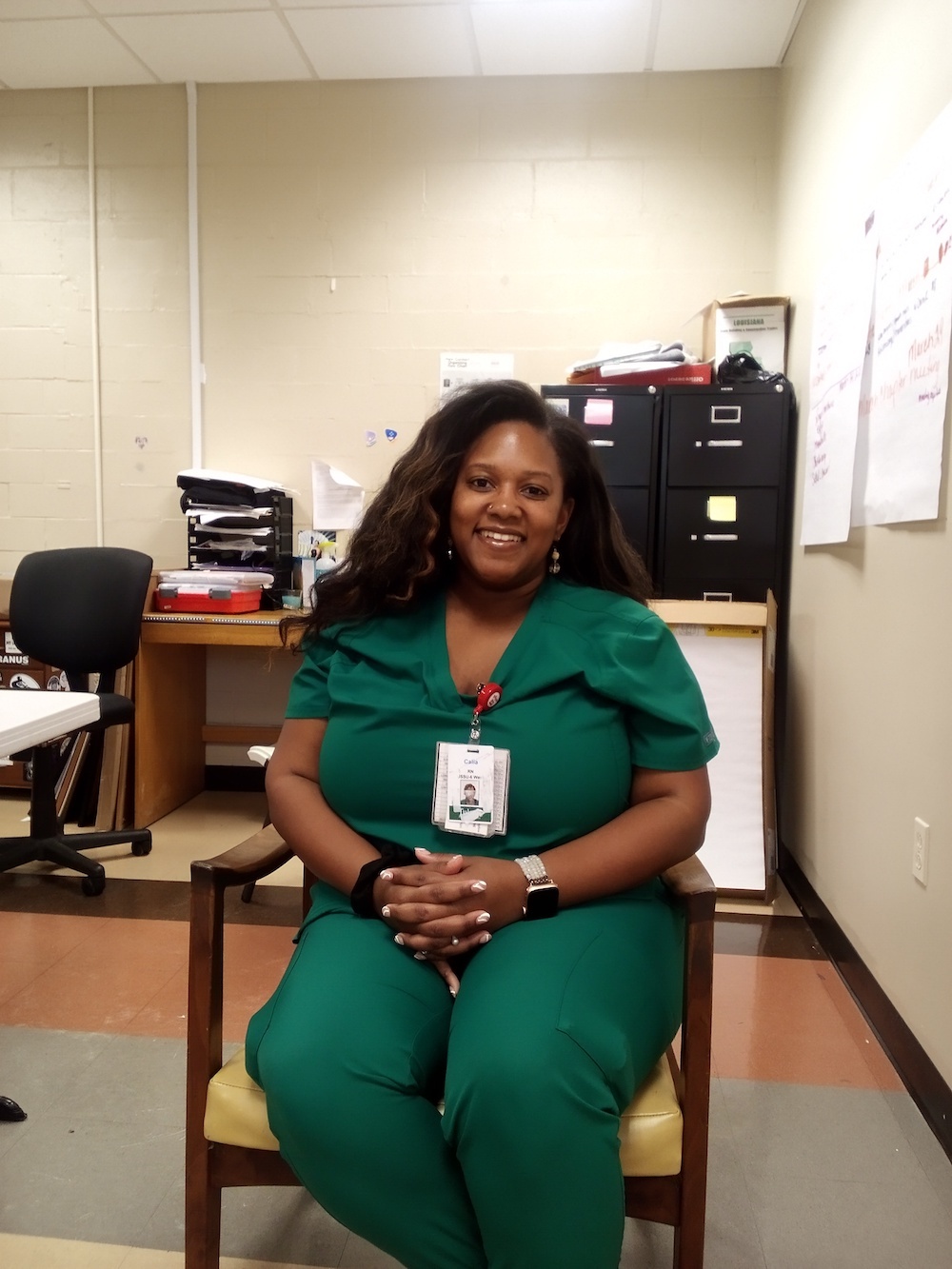
Calia Chavis: 'Everyone benefits when nurses have a seat at the table'
My name is Calia. I'm from Lafayette, Louisiana, so a native to Louisiana. I've been a nurse at Tulane Medical Center, in intensive care unit, for approximately two years. During my time at Tulane, I worked in a medical surgical unit and recently transferred to the intensive care unit.
What I hope to see on the leadership of LCMC is the safety of patients and nurses, and the recognition of a nurses' union. Nurses are the ones taking care of patients at the bedside, and are in the best position to advocate for our patients. Everyone benefits when nurses have a seat at the table.
While working, I have witnessed patient to nurse ratios that jeopardize patient safety in the intensive care unit. Because patients are so critically ill, nurses are best able to care for patients with a 1:1 ratio, or 1:2 ratio. But we are often being asked to care for three very sick patients at one time. Now to many, one nurse to three patients is a doable task, especially when other units like medical surgical units have six and possibly seven patients per one nurse, which is not optimal working conditions either. As a nurse with experience in both departments, having three patients can feel like seven.
In the intensive care unit I care for the most critical patients in the hospital. I have patients who might need dialysis when their kidneys are failing. As a nurse I had to monitor patients' blood pressures during dialysis to ensure that they do not have low blood pressures and become unresponsive. I have patients who might be on multiple medications to keep their blood pressures in normal ranges, to ensure that the patient body gets adequate blood flow and oxygen to ensure that patients do not lose limbs. I have patients fresh out of the operation room after major surgeries, surgeries that can include cutting the patient's head to remove damaged areas of the brain and ensure the patient's blood pressure does not get too elevated, when the patient can bleed out or possibly have a seizure resulting in the patient returned to the operating room.
I have patients who die, and the medical staff tries to revive the patient with medications and machines, and if revived doctors place multiple orders to determine the cause of the death to prevent it from happening again. So at that time, the revived patient has to be brought to CAT scans and MRIs by the nurse, leaving your other two patients on the unit to be monitored by other busy nurses. Labs have to be drawn, lines have to be placed, and sometimes doctors' education to families need to be reinforced. Still, most of the time it is two patients of the three, or this could all happen to one patient, resulting in the test having to be delegated to other nurses who are also busy to ensure patients are still being taken care of and no neglect is done.
I love being a nurse and working with the medical team at Tulane to provide care to patients and educate patients and their families. Still, these patient to nurse ratios jeopardize patient safety. I want to ensure LCMC has the plan to guarantee that nurses and patients are admitted into safe working conditions and feel confident in their care.
Overall, better patient to nurse ratios can improve patient satisfaction and decrease patient readmission rates to the hospital. There is more time to give excellent safe care to each patient when units in the hospital have adequate staff resources available and working. I call on the hospital to recognize the union, as a nurse wants to work with management and have clear channels to do so. Having a legally binding union contract will help retain nurses and ensure that we have the resources we need to care for our patients.
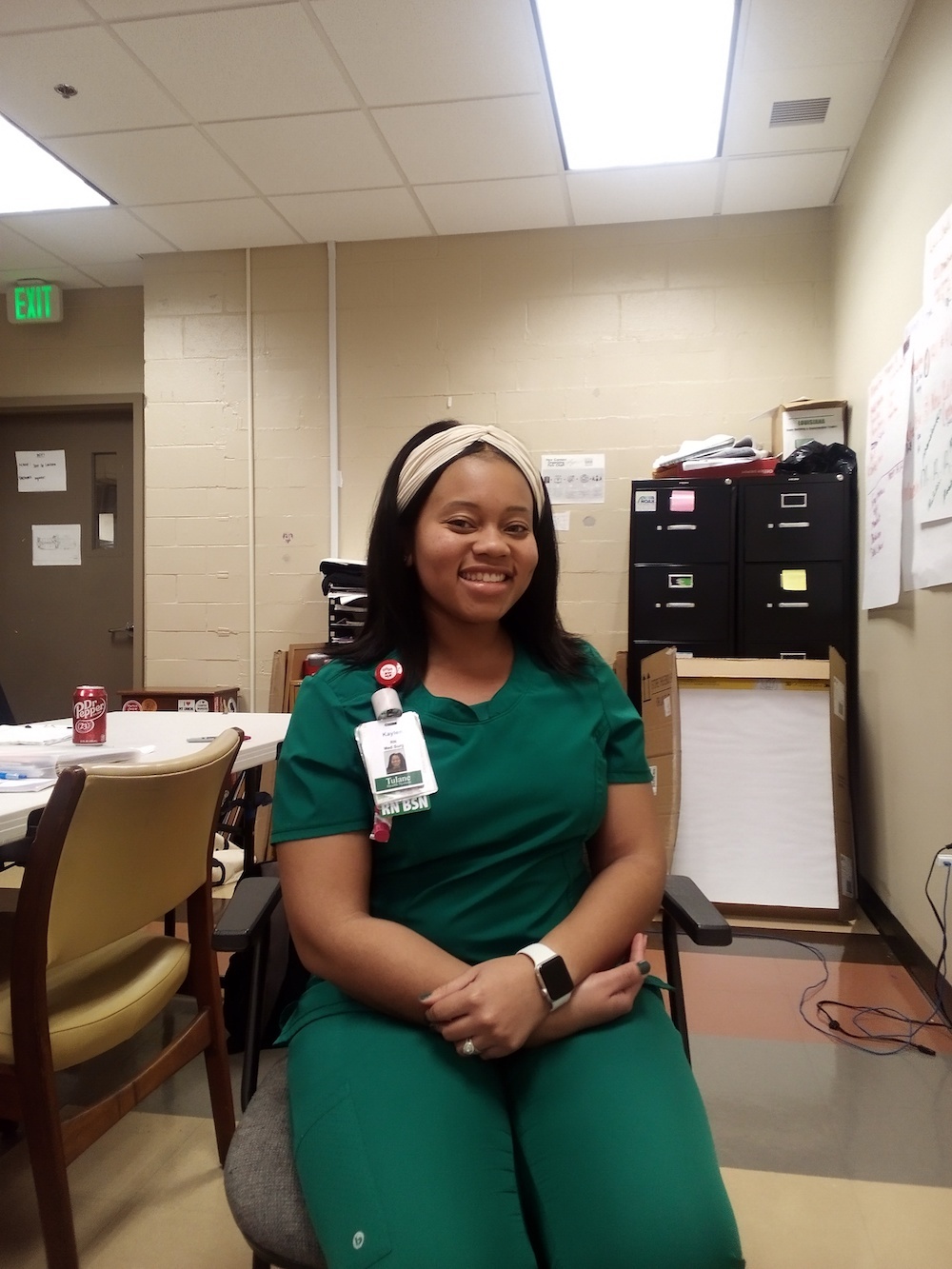
Kaylen Edwards: 'The hospital doesn't set us up to be successful'
My name is Kaylen, and I have been a registered nurse for a little under a year now. And I work on a neuro step-down unit at Tulane downtown. And I think that my biggest concerns with HCA selling to LCMC is that as a new grad nurse I did not have a good postgraduate education. And I think that it has been almost impossible for me to go from a nursing student to being precepted for just six weeks. And then starting on the floor, taking care of people by myself, you know, has been almost impossible.
That learning curve already is very steep. You know, you come out of school, you know that you're, you're not the best at skills and things like that. But we do not have the right mentorship and the right guidance. It makes it so much harder, so much more challenging. I think it's just been super demoralizing, to be honest. It's been really hard for me to stay put, and to continue to get my new grad experience here at Tulane, and I think that the hospital doesn't set us up to be successful. Because we've had so many experienced or “seasoned” nurses, as we call them, leave the hospital because there's no real clear communication about what's going to happen to us.
They don't provide competitive salaries, they don't provide safe or efficient working conditions. You know, we've had machines — like our EKG machine went out two months ago and still hasn't been replaced.
And then also … leadership. We don't have great leadership at Tulane. I've been under, you know — I worked at a hospital before I graduated college. Excellent leadership there. We did not have great leadership at Tulane. Good leadership, I believe, goes a really long way. So because of all that, it's really hard to retain experienced nurses because they can go somewhere else or they can travel and make way more money, and have better have better experiences elsewhere. So it leaves new grads like myself and a lot of other nurses at Tulane to basically teach ourselves, which is not all that great for patient safety and patient care, if I'm being completely honest.
I think that right now the best thing for LCMC to do is to recognize our union, and to show us that they actually care about patient safety and nursing retention by allowing us to have a seat at the table and to really give an input, because we are directly involved in patient care. So if you, if they, really care about making sure that patient needs are met, we need to have input because we are directly taking care of these people.
And there's just something so special about our city. There's something special about the people that live here. And it's our job, it's our responsibility as health care workers and health care systems to take care of our people, you know, because nobody can take care of our people like we can take care of our people. So I think once they do all that and once they acknowledge that we are a union, I think we can make some change in our city for the for the better.
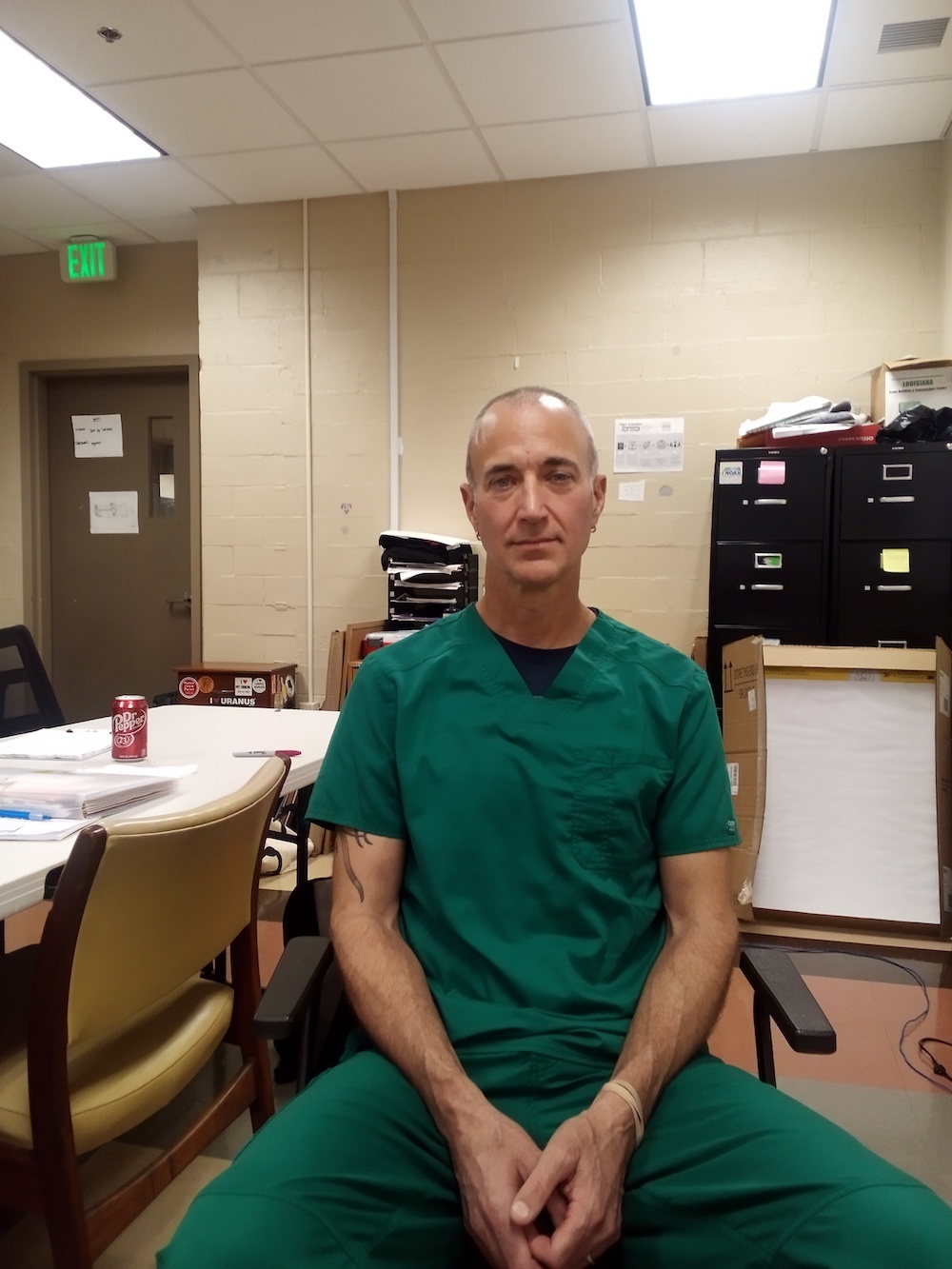
Michael Robertshaw: 'We have just been left on a promise'
My name is Michael Robertshaw. I have been a nurse now for three years, all those years at Tulane Medical Center Downtown. I currently work on a combined surgical and medical ICU. I feel like the things that are most concerning to me — we have a lot of things that are really concerning to us, but for me there's really two things that really bubble to the surface.
The first is that Orleans Parish is losing a 235-bed hospital. That is a hospital that is a major access point for the poor and underserved in our community, in our downtown area, largely through our emergency room. So we are losing those beds. We are losing a major stroke center. Stroke centers are certified, we have the only certified stroke center in Orleans Parish. And that is being shipped off to Jefferson Parish, is the current plan — that that will be sent to East Jefferson Hospital. And then all of our other services.
To date, what we know is that they have just said that those services of our hospital, the downtown emergency room, be closed, and all the other services will be farmed out between University Medical Center downtown and East Jefferson, with the majority of those being sent to East Jefferson Medical Center. That is deeply concerning to the nurses, and should be deeply concerning to the community, because we are losing a hospital that is a very critical access point to get care that our community needs, and that is being closed.
We feel deeply that LCMC needs to be transparent, and very clear with the community and the staff as to how they plan to make up for the loss of this 235-bed hospital — and including, and in particular, our downtown emergency room when we already have a major crunch in access to care downtown. That LCMC needs to be very clear about with the community and our staff about what the plan is. And they have yet to do that. So that's that's my first concern.
The second concern is around the staff at that hospital. That includes the nurses, that includes all of the ancillary staff. So ancillary staff would be folks who helped to clean the rooms, who helped to care for the patients, who, you know, bring food to the patients — like the staff that are really critical to the function of any hospital. To date, we've all been told that we are all guaranteed jobs. And we take them at their word, but we have yet to have any clarity around where those jobs are going to be, what those jobs are going to be. Are we're going to get a job in our same discipline? What is going to happen if we say, for example, get told that our job is going to East Jefferson, and we don't want to go to East Jefferson? What are our options then? So our concern around the staffing at the hospital is there has been a complete lack of transparency and clarity with the staff, letting them know where they're going to go, what their distance is going to be, what their compensation is going to be.
We have just been left on a promise. And it is completely unreasonable to expect people to wait around who have families, who have bills to pay, to just exist on a promise from people who have yet to show that they have been able to be clear and transparent in any matter since the sale. We believe deeply that nurses should be treated like professionals, and to have a say in the transition of this major change to our health care system in this city, which is now going to become a duopoly. The two major players will be LCMC and Ochsner. We know when that happens, that wages go down and cost of care goes up.
So the way that LCMC can show good faith is to treat nurses as the professionals that we are, recognize our union, give us a seat at the table so that we can help in this transition. And if they do so, we believe strongly that we will be able to both help to retain and recruit nurses into our system to make it the best possible system that it could be.
Tags
Jason Kerzinski
Jason Kerzinski is a street portrait photographer and journalist who has published stories in The Real News Network, Scalawag, The Progressive, and Antigravity.
